Making a Heartwarming Ode to Connection, Samoan Culture and Motherhood That Sings: Miki Magasiva and Anapela Polataivao Chat 'Tina'
Real-life choir contest The Big Sing inspired this affecting movie, which is now the sixth most-successful New Zealand film in history.
With his first feature, Samoa-born, New Zealand-based writer/director Miki Magasiva is living the filmmaking dream, all by championing what's important in his culture. Tinā, about a grieving mother who takes a job at a private school after the Christchurch earthquakes change her life forever, premiered at the Hawai'i International Film Festival late in 2024. Just over six months later, it's a homegrown hit that's earned so much affection from audiences in Aotearoa that the picture is now one of the most-successful NZ films in history. Sitting in sixth place as at mid-April 2025, Tinā is behind only Taika Waititi's Hunt for the Wilderpeople and Boy, then The World's Fastest Indian, Once Were Warriors and Whale Rider. For the year so far overall, it's second to A Minecraft Movie at the New Zealand box office.
Taking on her first lead role after decades as an actor — on-screen, see: The Market, One Thousand Ropes, The Changeover, Filthy Rich, The Breaker Upperers, The Justice of Bunny King, Our Flag Means Death, The Rule of Jenny Pen and more — Anapela Polataivao wasn't envisaging this reaction, after she initially came onboard Tinā to help with the movie's development process without knowing that Magasiva had plans for to star. "Let's just say I did not anticipate this kind of response," she tells Concrete Playground. "You do the work and then you walk away and hope for the best, but this has been a continual — the response has been incredible, and mainly from our people, who are so appreciative of the work. And also a lot of the comments also are about their pride in the work, and visibility and for them being seen in our stories. So that's a great compliment."
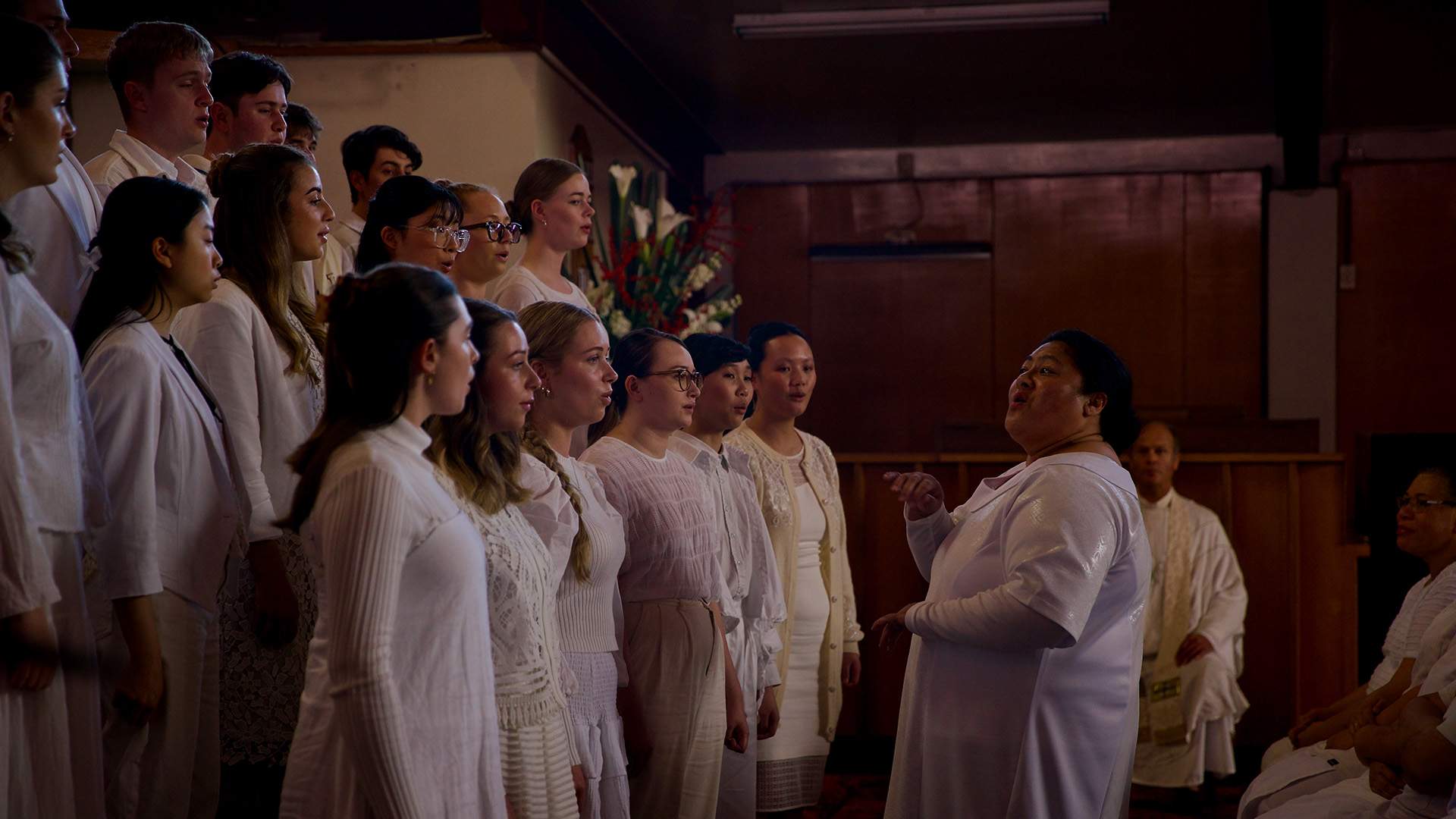
Did Magasiva foresee that Tinā, which takes its title from "mother" in Samoan, would strike such a chord? "Yes and no," he advises. "We were confident we had an initial script that people would enjoy watching. And then once we did the first round of edits, we knew we were onto something good that people would want to go and watch. However, having said that, the eventual response that we've gotten so far has been far beyond what we expected."
"Touching on what Bels has just said before, you make these films and then you think 'that's it, my job's done. I'll just send it off — and if people go watch it, great. And if people don't go watch it, well, that's fine, too. We can't help that.' But having people come up to us and talk about their experiences, transformational experiences with family members and themselves, having gone through watching the film, is just way beyond what we ever expected. And so it's just been this really massive surprise for us that we're just so overwhelmed by and thankful for."
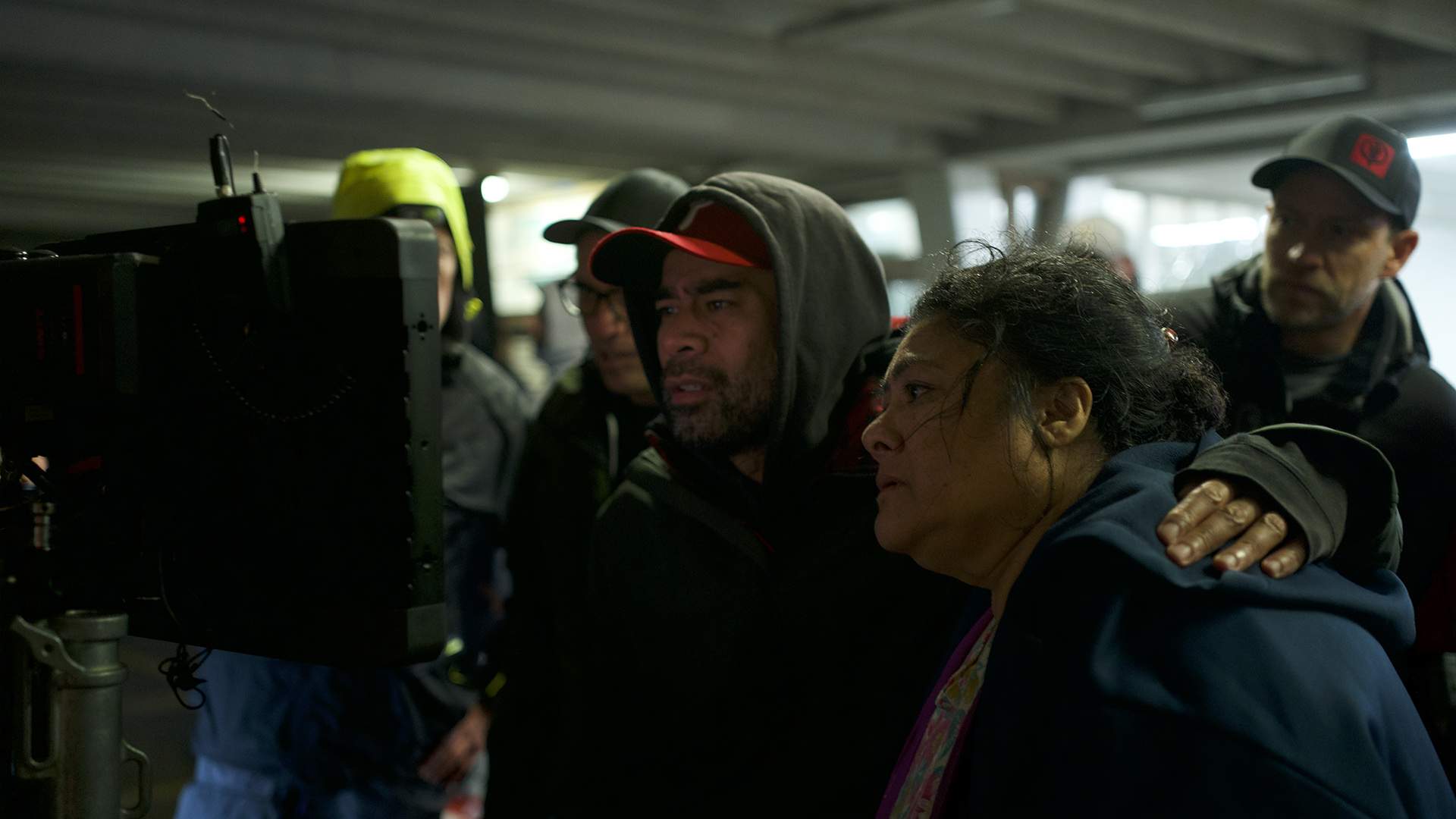
Screening in Australian cinemas since Thursday, May 1, following its NZ release on Thursday, February 27, Tinā's origins mirror plenty of other movies in one regard: art imitating life. That said, Magasiva combined inspiration from IRL choir contest The Big Sing, the New Zealand choral festival for high schools that's been running for over 30 years, with not only tapping into Samoan culture but paying tribute to both the importance of connection and the leadership role of mothers. Mareta Percival, the heartwarming film's fictional protagonist, dotes on her daughter when the feature begins, encouraging her to make the most of her singing talents. Then tragedy strikes. While grappling with her loss, substitute teaching at a wealthy school becomes a necessity — and starting a choir that croons Samoan tunes proves a much-needed move for Mareta and her new pupils alike, even if some in the privileged community that's barely letting her in are vocal in their opposition.
Tinā sits on Magasiva's resume after decades in the business as well, including earning acclaim for his shorts — Rites of Courage arrived in 2005, then Uso in 2006 — and working in television. The Panthers, of which he helmed two episodes, was the first-ever New Zealand TV drama series to screen at the Toronto International Film Festival. On We Are Still Here, an anthology feature directed by Indigenous filmmakers from New Zealand and Australia that opened the 2022 Sydney Film Festival, he was one of the behind-the-camera talents. His success with Tinā is far from overnight, then, but it might not have happened if he hadn't been so moved by online The Big Sing footage.
With Magasiva and Polataivao, we also explored the journey from Tinā's first sparks to the tale that viewers are now being so touched by in cinemas — a story that puts the importance of moving forward collectively at its core; that is shaped by grief, and understands how mourning is so personal yet universal; and that also centres navigating cultural differences as a warm, hopeful film, while not shying away from the impact of attitudes of prejudice. And, we unpacked how Polataivo came to be its lead, what that achievement means to her, how Magasiva built Tinā's cast around its star and more.

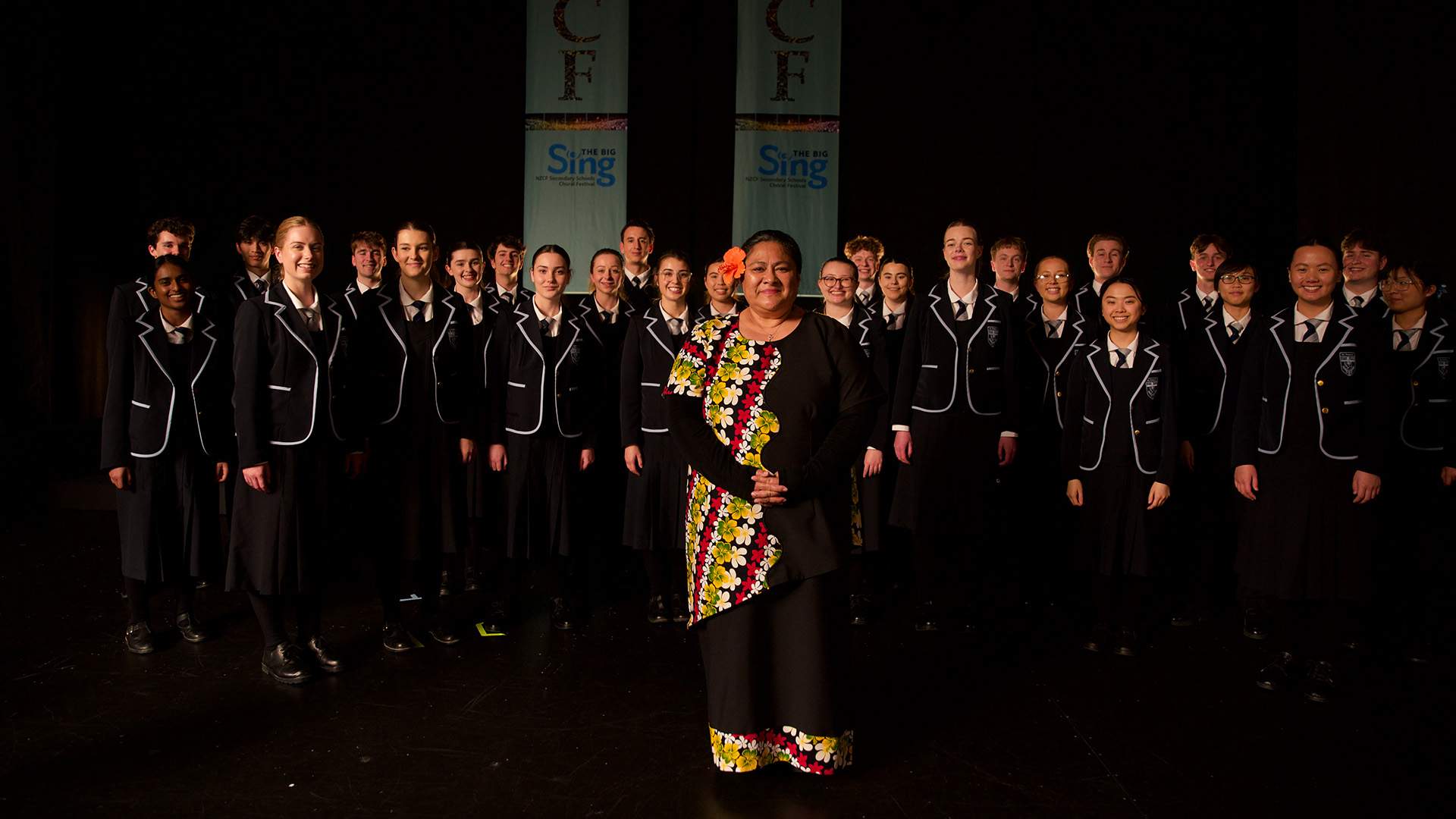
On Finding Inspiration for the Film in Online Footage of High School Choirs
Miki: "It was hearing the choir performing. We grew up in churches, Samoan churches, listening to choirs, so we know it well. We have this sort nostalgic memory anytime we hear all of our old church choir songs.
And so when I saw that, I was just so emotionally moved. I almost cried watching that video or that YouTube clip. I just thought that would make a great premise.
I thought 'if I can just recreate some of the emotion that I'm feeling at the moment, I think we're on to something really special here' — and so I think luckily we've done a little bit of that."

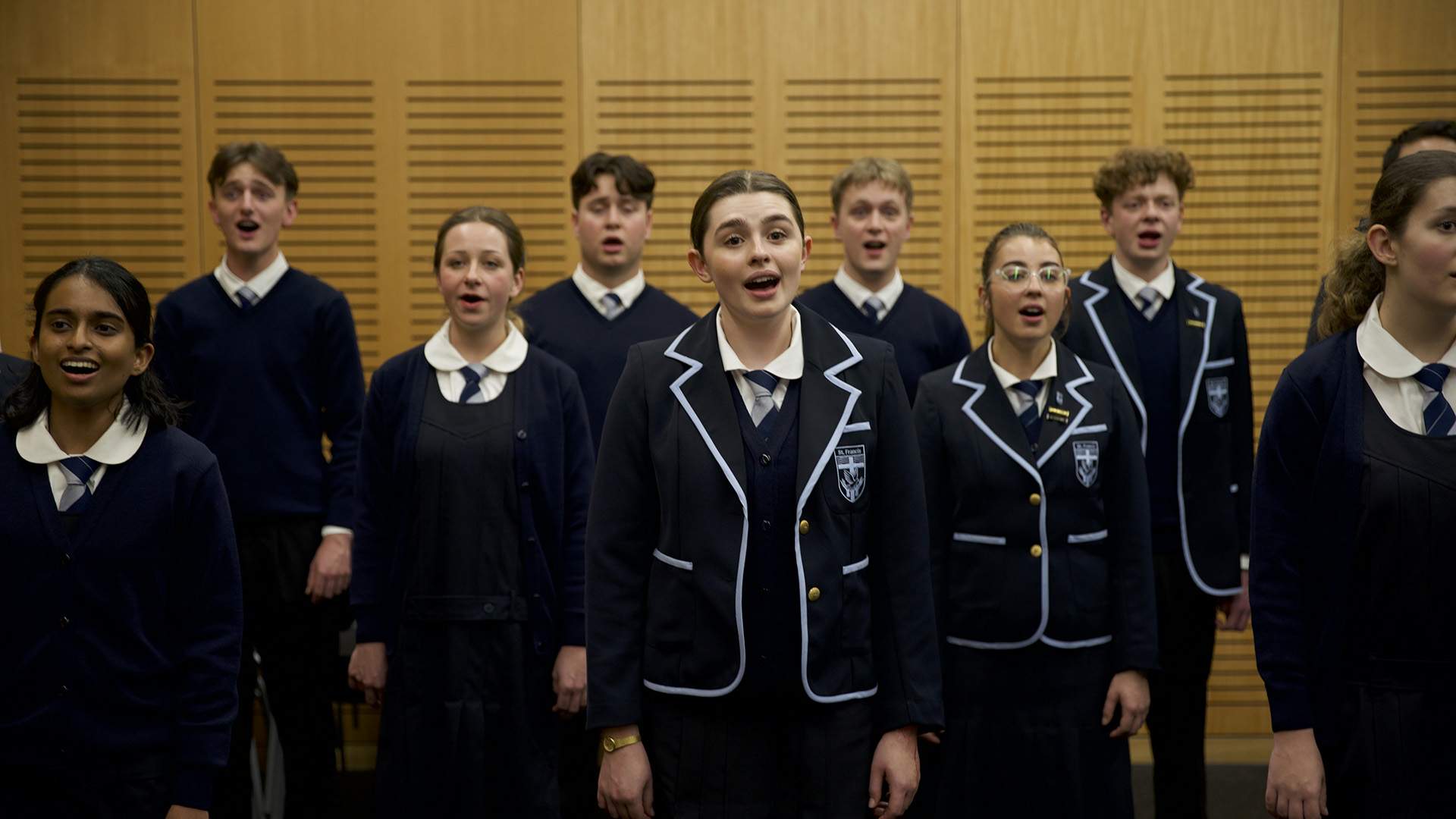
On the Path From Watching New Zealand's The Big Sing Competition to a Story About a Grieving Samoan Mother Getting a Job in a Private School in Post-Earthquake Christchurch
Miki: "Well, it's a story process, much like you go through when you when you create stories. And what's always good is we had the end in mind, and so we wanted just to build towards that moment, that end. We were always working our way towards the end.
So it's about 'who's the main character?'. And it's a drama, and so we try to create situations and journeys for her to get to that end — and put her into situations that challenge her, and put her into situations where she has relationships with others that really drives her towards the end there.
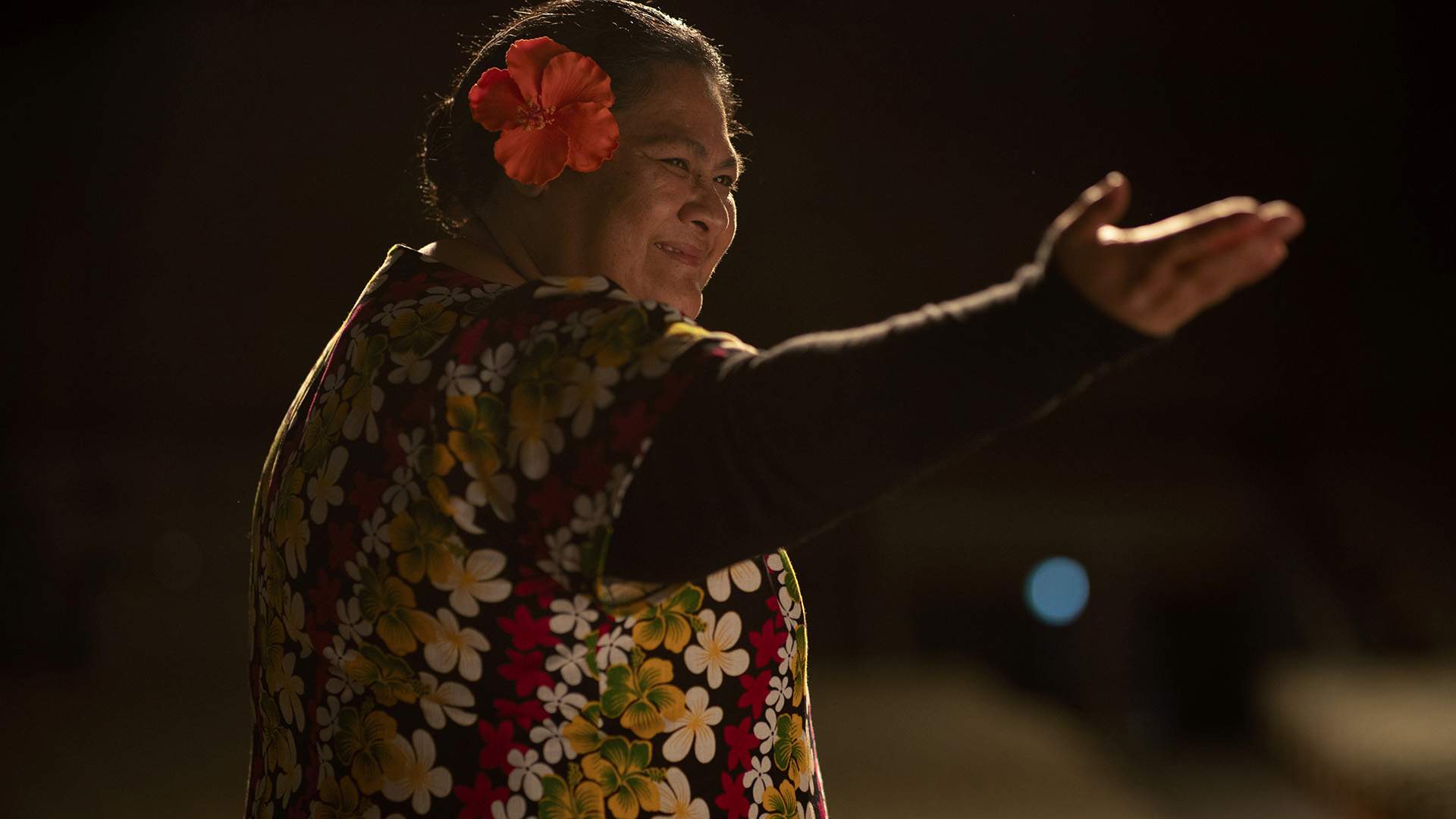
And then when you're piercing these things together, you source techniques that you like yourself. There's a lot of comedy in the film, and so I wanted to infuse the storyline with a bit of comedy. And it seemed to work well, because it has this sort of mother-teacher relationship that I always find funny, and I think that that can be a really rich ground for comedy.
Add into that a bit of emotion, add into that music, and then just drive the story towards the end — it's a really fun part of the process."

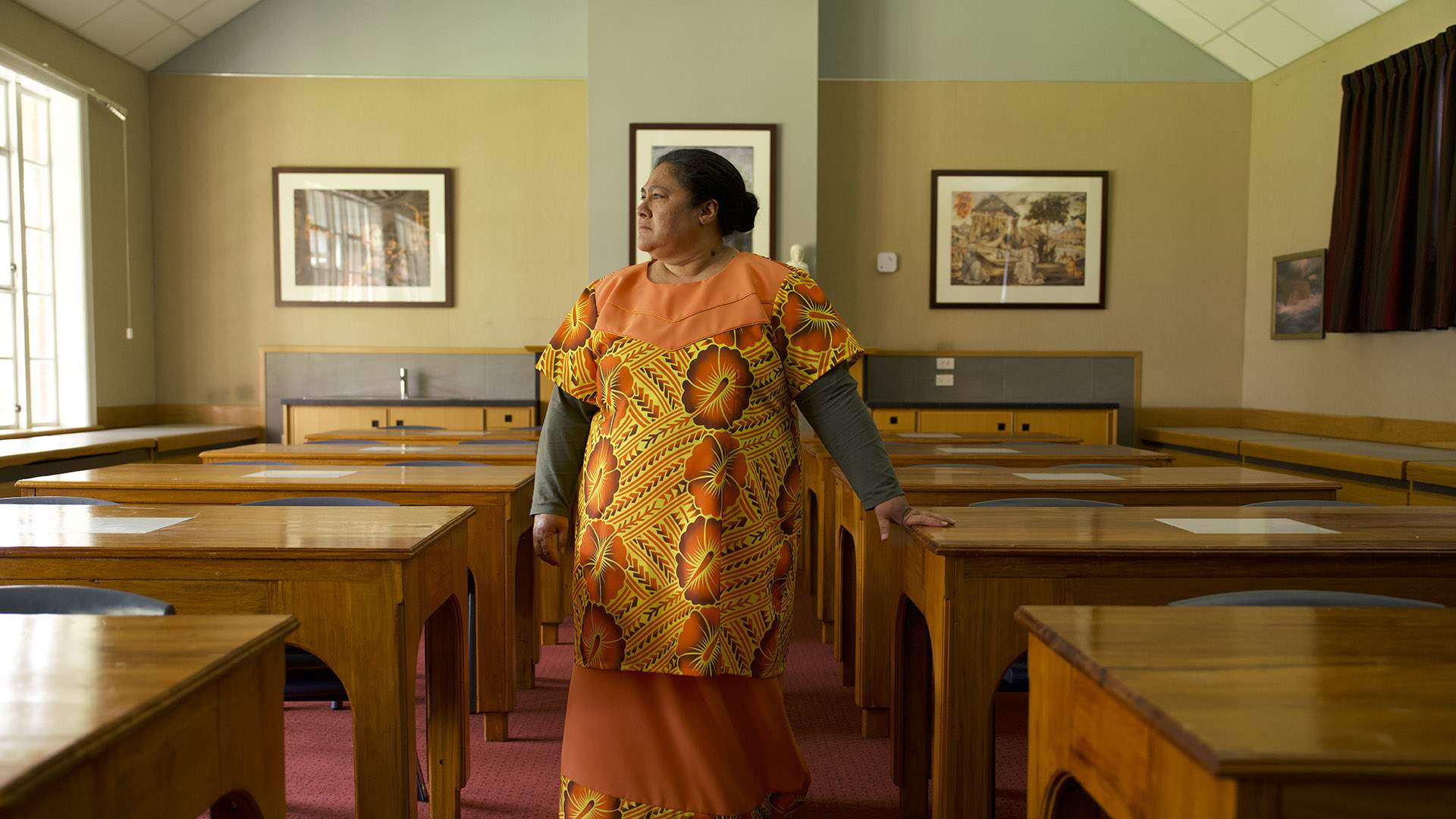
On Polataivo's Initial Response to the Project — and Being Asked to Help Develop the Film Without Knowing That Magasiva Wanted Her to Play the Lead
Anapela: "Yes, this guy — let's not go there."
Miki: "I tricked her."
Anapela: "He did. Because these things, I'm just so used to working as part of the team, being the assistant or coach or stuff like that. So when I come in to help, I don't have any other thoughts or any other preconceived anything. It's just like 'I'm going to help my friends'.
So when these guys got the green light, and then I get the call saying 'hey, we had you in mind for it' — gosh, I was just like 'you little ...', all of the things. And then, of course, I think we did our first read — I had said yes after that, and then we did our first read where everyone was a mess and we were all in tears. And that's just when you know it's a family affair and it's going to work."

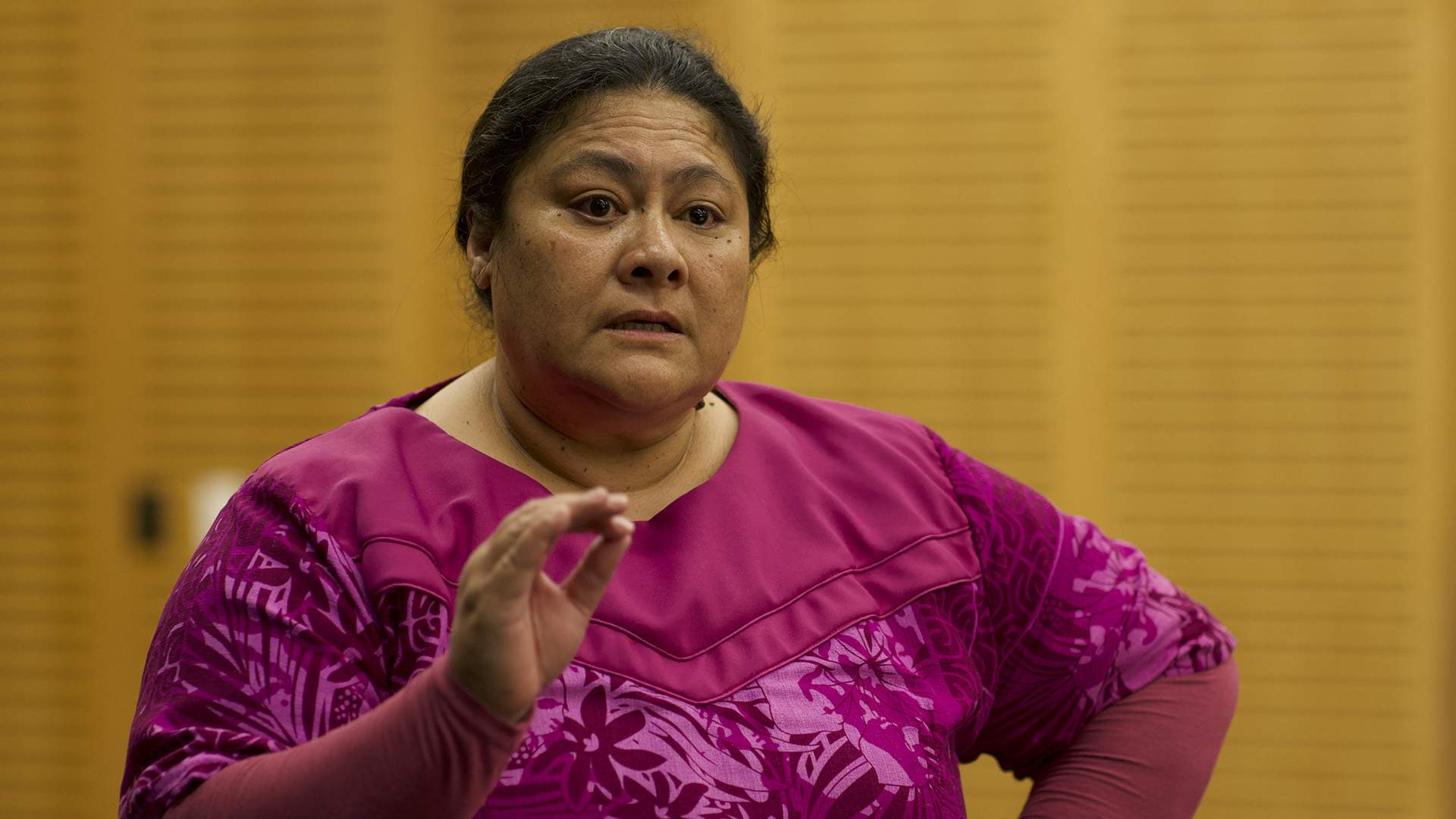
On Polataivo Scoring Her First Lead Film Role After Decades as an Actor
Anapela: "I think this is different. This was a different one, because it was more personal — so it wasn't like 'oh my goodness'; it was really like 'okay'. I didn't even think about being in the lead, either. I just felt like I was just part of the fabric of the story. There's so many moving parts.
Yes, you may be driving the thing, but you understand, well I understand, you'll be able to play that — and to be helpful and to assist in the purpose of it. So it was not an 'oh my goodness' moment. It was an 'oh my gosh', because it's personal, it's family, and you just know.
My partner would always say to me 'Bels, it's one shot, one shot for Miki, let's go' — with that tone. And I get it. It is. Any shot we get, it is a shot. And we don't take those things lightly, either. So we go and you pour all of yourself in there. And we do have a big sense of responsibility, as well, to continue."

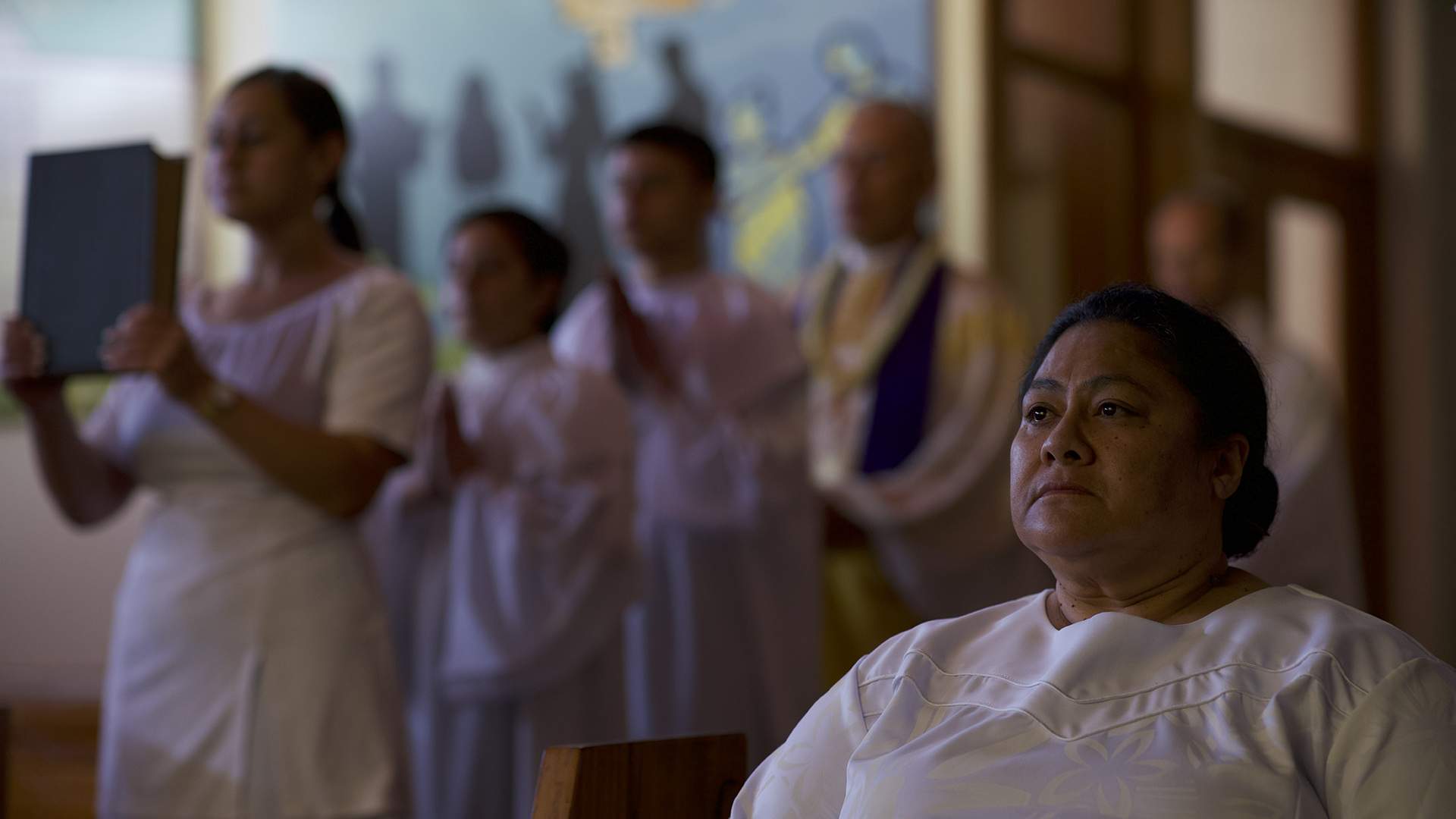
On the Importance of This Being a Movie About Community and About Moving Forward Collectively
Miki: "It's everything. It is what we are to be Samoan or Pacific. It's just how we see the world. So right from the way we run our sets to the way we run our production, to the themes of our story, that's how we communicate — and that's how we see the world, and that's how we work.
So it is everything to us. And so to have a film reflect those themes, it's really important and allows us to highlight our culture in a way to the world that communicates what it is like to be Samoan and what it is like to be a Pacific Islander, what it's like to live in New Zealand and Aotearoa.
And I think a lot of communities around the world can resonate with that, can see something in that, that they connect with as well. So I think it's a very human condition."

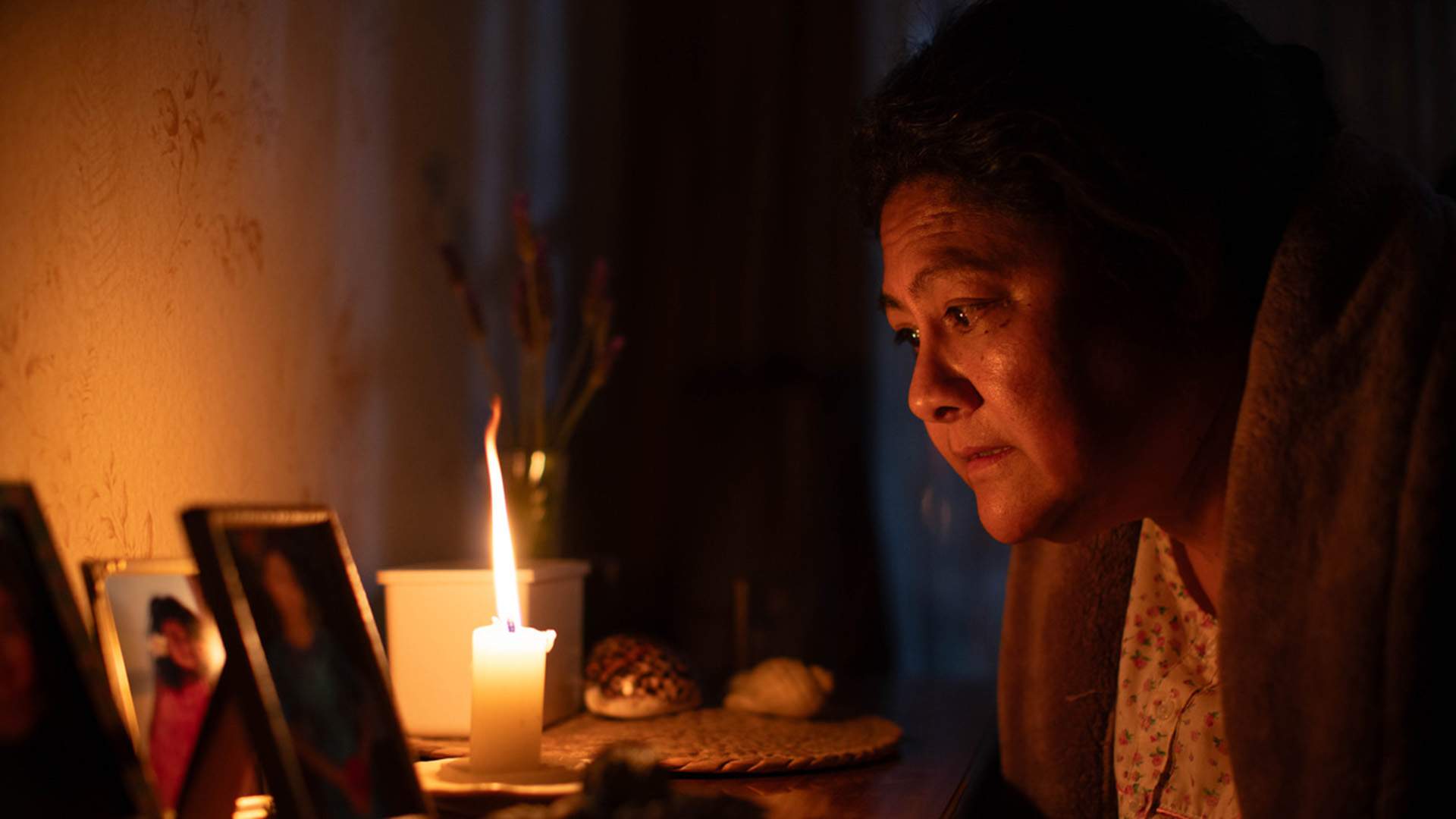
On Making the Specific and Personal Universal Through the Film's Story of Grief and Connection
Anapela: "It's not a thing — it just is. It's only when we talk about these things and analyse, but they are just a way of being. It's like with Miki talking about in Samoan, we're talking at very young age about sharing, and also that you're not the most-important person in the line. If anything, you're the last, you're supposed to help. It's never ever about you.
There's this quote that says 'I is we always in a Samoan village'. So it's that mentality. That's how we're born. We're born into religion. We're born into all these things that make us Samoan.
That goes more into the nitty gritty of what it's like. But when you try to find all those nuances in her, to not only explore but to allow those things about her being Samoan to breathe on-screen, to bring life and to evoke — let's just say, some of the comments that I've read, and I know it's from non-Samoan viewers, are 'we get a window, we kind of understand now what that means to be a Samoan just through that story'."
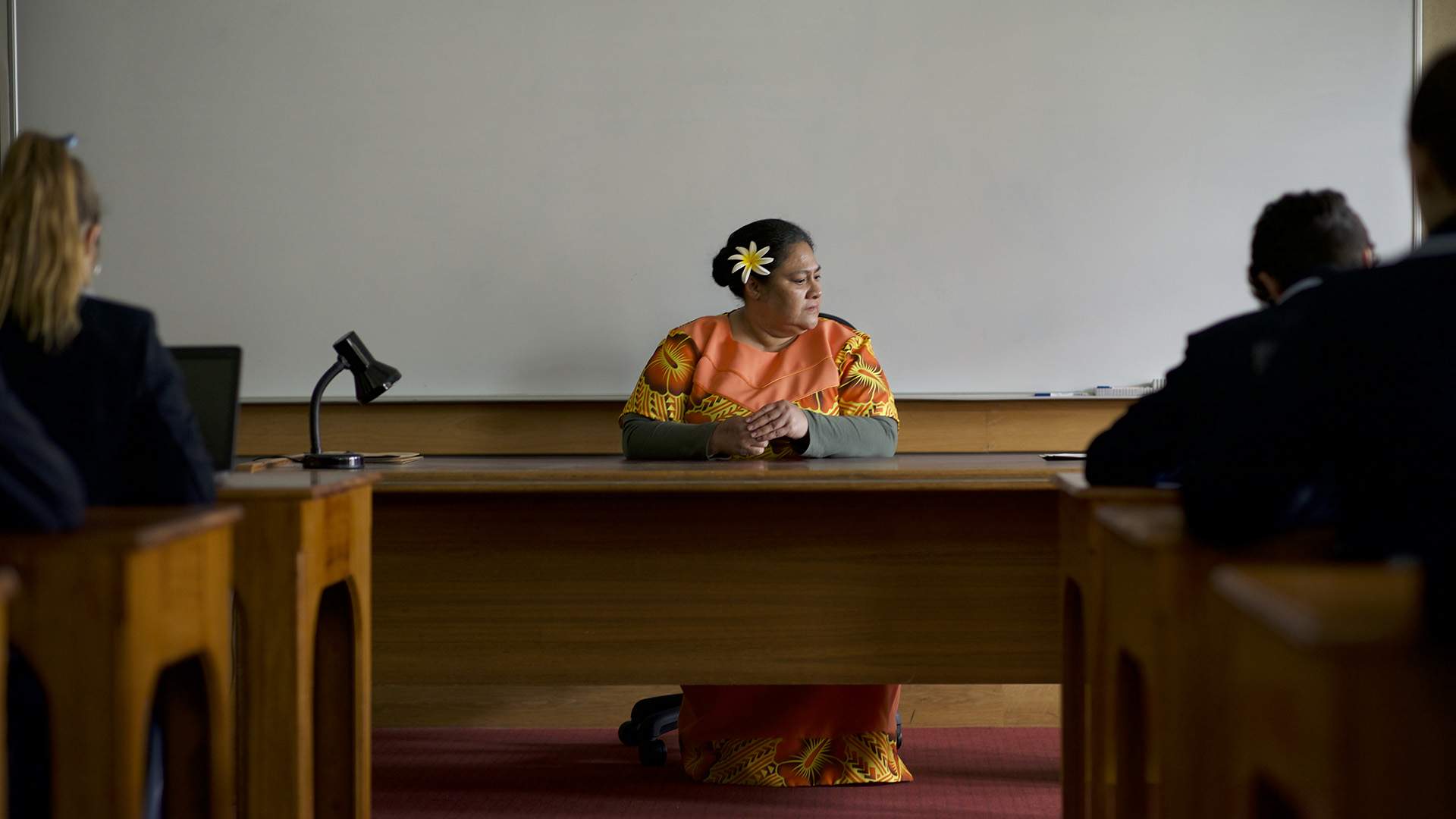
Miki: "And it is things that we think about when we're piercing it together as well, so that will be the heart of it. But we've tried to create a story that does feel universal, that everybody can connect with. So we're telling a story from a Pacific perspective, but we're telling a story that's a universal story.
Those who go and watch the film will see that it's not all about just being a Pacific Islander. And we've had great success back home in New Zealand because the entire country has found something to connect with. And we've tried to build that into the story, when we pieced it all together — that it is about community and coming together, and cultural acceptance.
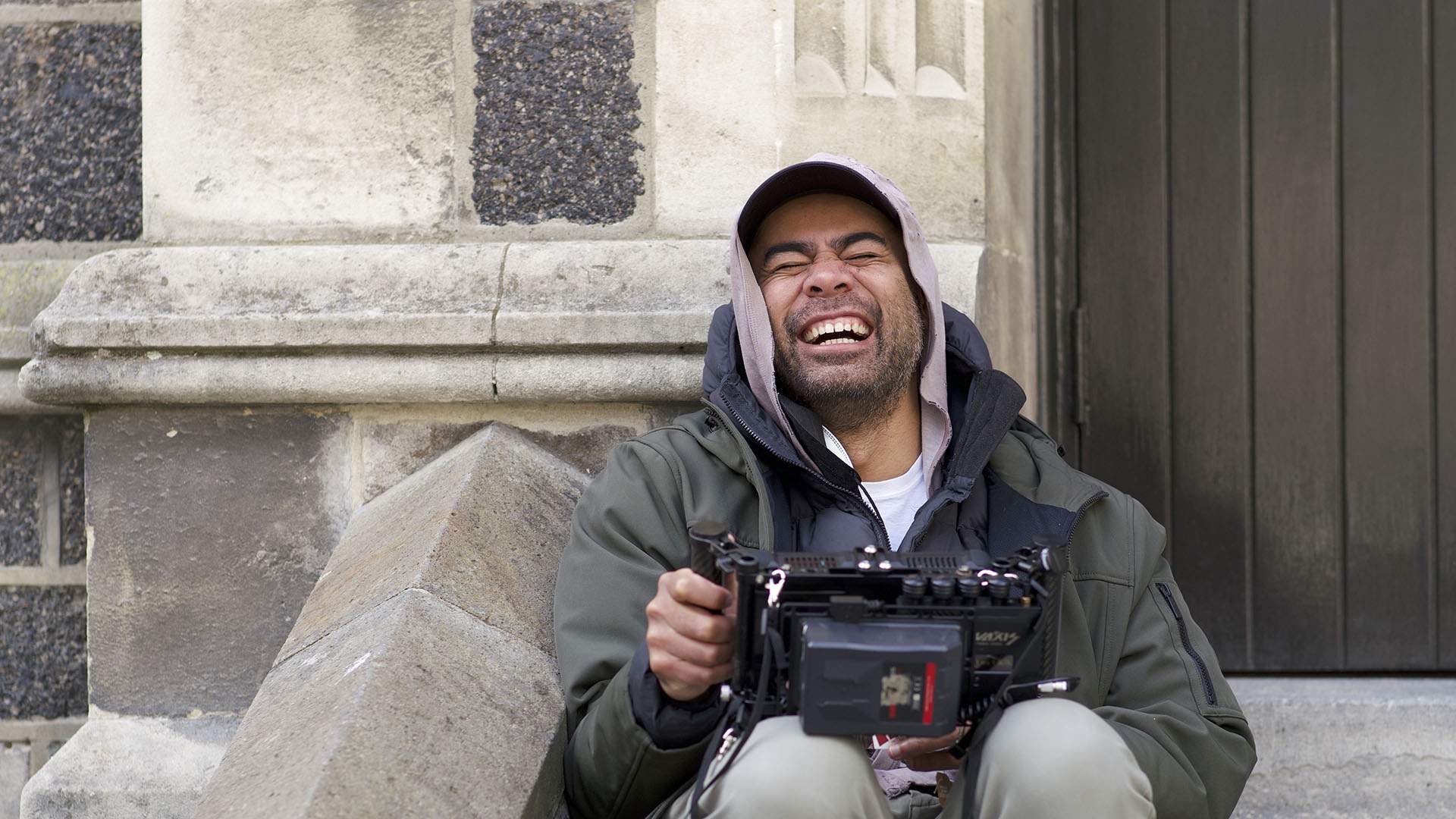
A large part of our European community back home have connected with the film because it has those things in it, and it does deal with things that they can connect with and they find funny, and they can find some sort of connectivity back to how they grew up as well.
So hopefully it is a universal story for everyone."

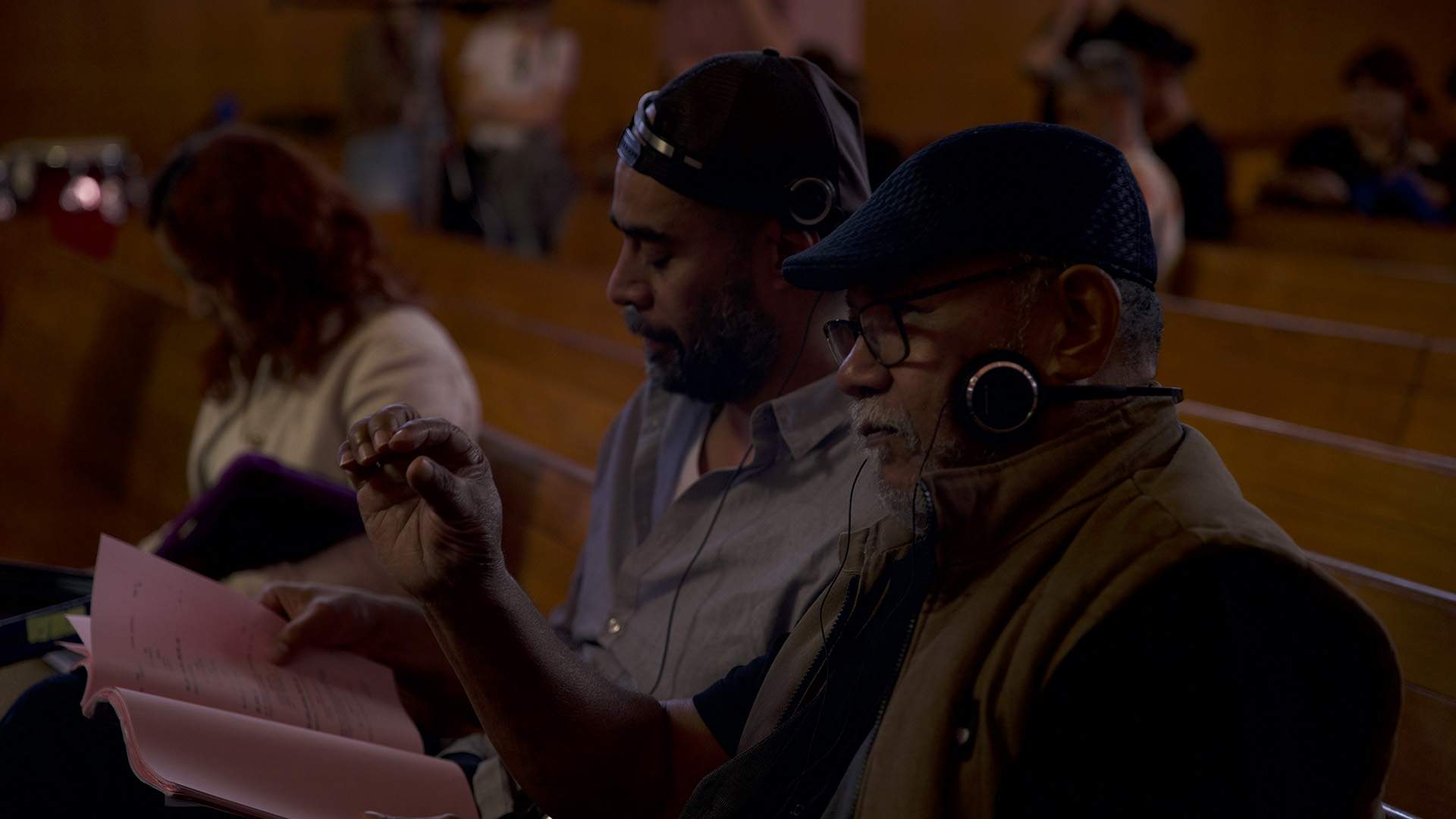
On the Movie's Approach to Navigating Cultural Differences
Miki: "I tried to put it this way: we're not trying to hide from our past, and we are saying that these things did happen — and actually continue to happen, let's face it. And we've dealt with a lot of that stuff both on the nose, both directly and a little bit more subtly in the film, too.
But you have to have that backdrop to it. You have to have some sort of setup for the entire film to end up in a place that we hope everybody ends up, which is inclusiveness and working together and coming together despite our differences — that we can celebrate a culture and the richness of it, we can say that we have been through this and some of us continue to go through these, but we can work our way through it through cultural acceptance and working together as a community."

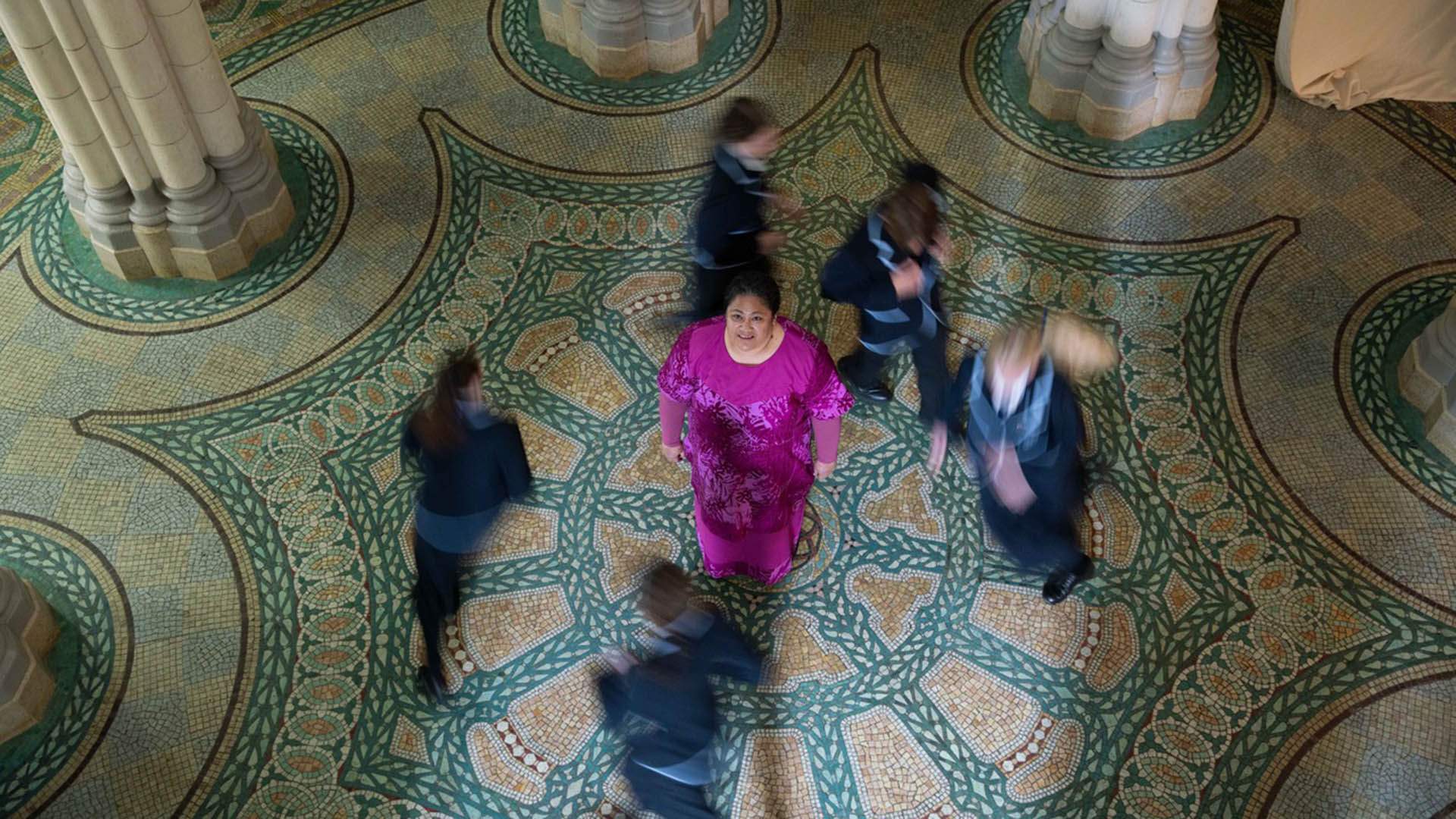
On Building the Cast and the Choir Around Polataivo
Miki: "It's an exciting part of it. So, all of our students had to sing in their auditions. They all sung songs to audition for it. We went through the natural casting process. But we got really lucky when we came across Antonia [Robinson, Mystic], who has a musical background herself. She's a great singer anyway. She sings in her real life. But she's also a wonderful actress.
We absolutely love Antonia. She's very hard-working, she's super talented. We know she's going to go on to great stuff after this.
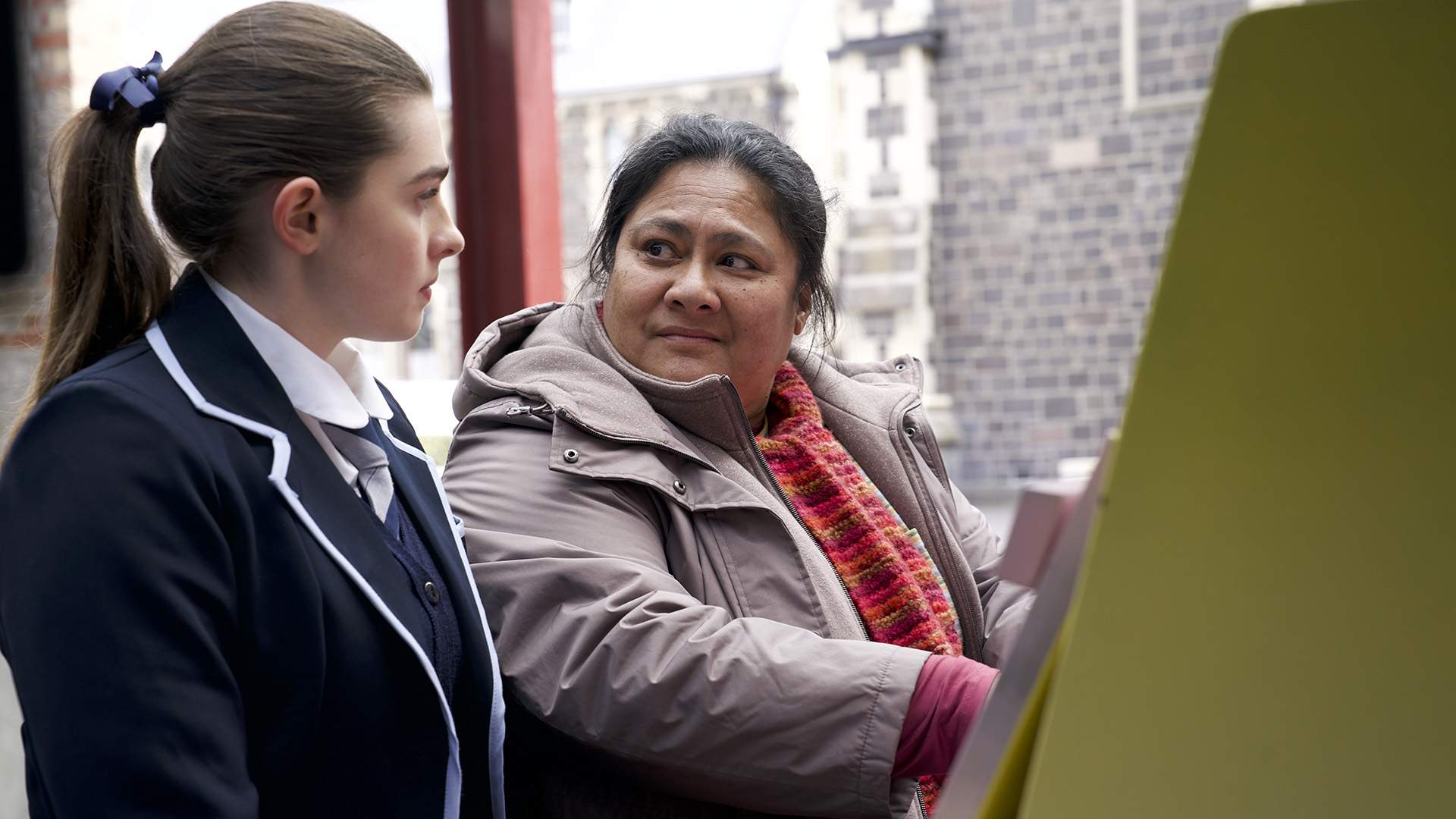
And then we managed to also find and create students next to her, in Zac [O'Meagher, Uproar] and Talia [Pua, Happiness Is the Path] and Tania [Nolan, The Convert] who had their own unique traits that they could bring to the group as a whole.
Outside of that, we also have lots of wonderful New Zealand actors in there. Beulah Koale [Next Goal Wins] is in there, and Nicole Whippy [Shortland Street] is in there. Jamie Irvine [Literally Dead] is in there."
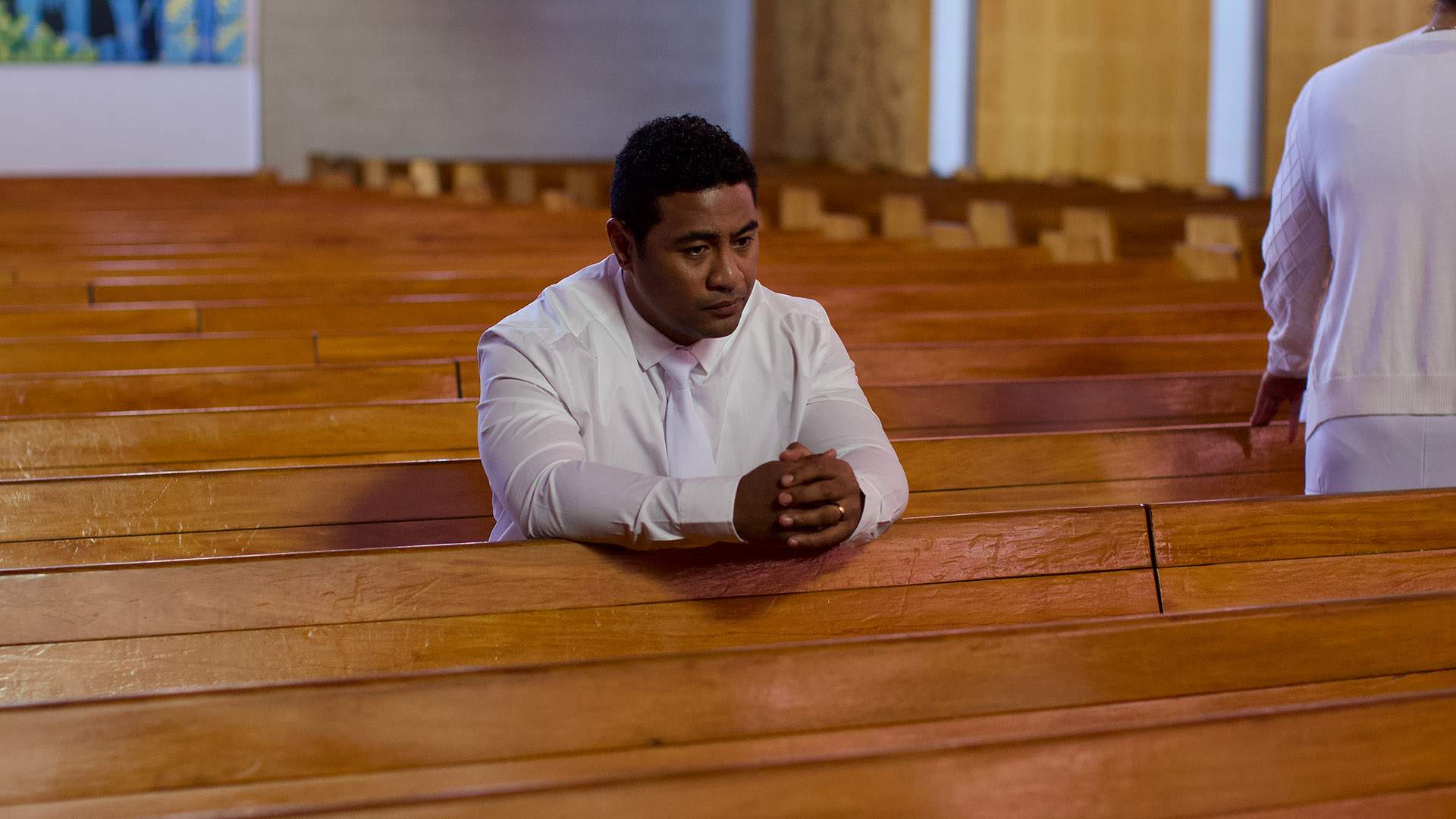
Anapela: "Alison Bruce [The Gone]."
Miki: "Alison Bruce as well. So we've got all of these well-known and really experienced New Zealand actors that not only are around Bels, but also help support and stand next to Bels."
Anapela: "And our guy from Perth."
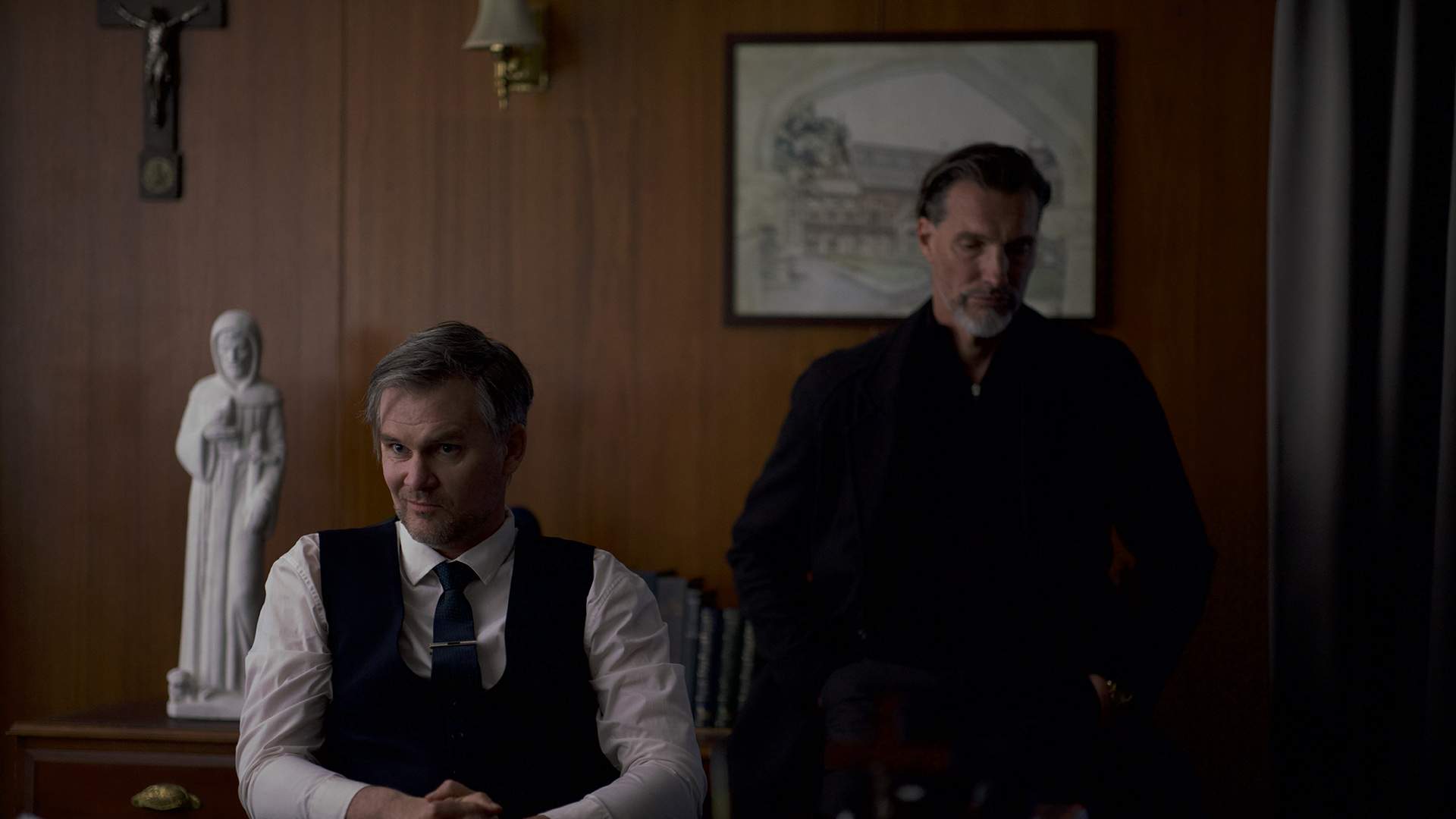
Miki: "And Dalip Sondhi [Better Man] as well, who I think is a wonderful Australian actor — from England originally as well, the UK.
So it was just special to be able to build a cast to support that. And they were all just so wonderful and embracing the community spirit of what we were trying to create. They're all amazing in the film, so it's quite lucky — super lucky and grateful."

Tinā opened in Australian cinemas on Thursday, May 1, 2025, and in New Zealand cinemas on Thursday, February 27, 2025.





